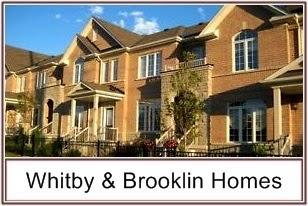As a growing segment of the Canadian population watch house
prices rise consistently and view the stock market as being far more risky
because of movements up and down, owning a rental property seems far more
appealing. Some people set out to become a landlord and purchase an investment
property, while others choose to retain and rent out their existing home.
With a plan in place and the help of professionals, becoming a landlord can be a wise investment.
For many, having a few rental properties is a good substitute for pension or
savings toward retirement.
Thousands of Canadians rely on residential income
properties, whether close to home or abroad, to help them feather their
financial nests.
Done right, investors stand to reap big rewards over the
long haul, industry experts say. But property investment can also come at a
heavy price to those who aren’t prepared to learn the market and do the
less-than glamorous work of a landlord.
If talk about housing bubbles gives you ulcers, or you
aren’t willing to answer the phone at 2 a.m. when the tenants call to tell you
the pipes have burst, then investing in real estate might not be right for you.
“It’s like any business that you want to enter. It’s all
about time, money and expertise. If you don’t have the time, you at least have
to have the expertise and you have to have the money to make it fly,” says Phil
McDowell, a mortgage broker in Calgary.
For those who are considering investing in a rental
property, there are a few basic rules to keep in mind in order to mitigate the
risk of the deal turning sour, says Melanie Reuter, director of research for
the Canadian branch of the Real Estate Investment Network (REIN), an investor
advisory organization based in British Columbia. The key is to look for a
community or region that shows clear signs of growth and economic
sustainability. GTA rental vacancy rates
are low, as steady influx of residents
moves to Toronto. Here in Durham Region, vacancy rates are about 2.3 per cent.
Ms. Reuter says it is equally important for investors to
have a clear idea of the true monthly costs, including mortgage, interest and
property tax, as well as potential extras, such as repairs, on-going
maintenance costs, condo fees, property management fees, etc. She recommends
those considering property investment should also set aside an emergency fund
to cover repairs and maintenance, or unexpected vacancies.
Many investors choose to save money by doing the management
work themselves, but that comes with its own costs. Landlords should expect to
put effort into finding good tenants, avoiding bad ones and fielding the
overnight phone calls when something goes wrong.
“We’ve all heard stories of someone who had the tenant from
hell,” says Jason Abbott, a financial planner and president of Wealthdesigns.ca
Inc. in Toronto. A real-estate investment fund may be a better option for
someone who wants to be involved in real estate without having to manage a
property or assume all of the risk, Mr. Abbott says. The one downside is that
it can be a lot harder than more traditional funds to access your money should
you need it. “Mr. Britton recommends his
clients treat property investment as they would any business. That includes
hiring a tax professional to help them report an income property, including
expenses, revenues and asset appreciation. Not reporting an income property can
land an investor in hot water with Canada Revenue Agency.
“If you choose not to report, you are taking the chance you
won’t be found out. If you are, it is not going to be pretty,” Mr. Britton
says.
Mortgage rules require investors to have a minimum down
payment of 20 per cent and to have proof through tax returns of the their
income and assets. In most cases, it is important to have secure employment to
prove you can cover a portion of the mortgage at any time. “You should be able
to demonstrate that you’ve got a reserve fund available to you should you have
a major repair or if the tenant skips,” Mr. McDowell says. Homeowners who are interested in an
income-generating property, but don’t have 20 per cent to put down, may want to
consider a basement or suite within their own home, he adds. A primary
residence with a rental suite requires a 5-per-cent down payment.
A growing number of my clients are purchasing investment
properties to secure their future. Purchasing an investment property is a
business decision and not a rash or emotional purchase. I can help you avoid
the pitfalls and mistakes when buying an investment property here in Whitby,
Brooklin, Oshawa, Courtice or Bowmanville. The expansion of Highway 407 is
madding Durham Region more accessible and it is boosting house prices and
rental rates. The refurbishment of Darlington will create a demand for rentals,
creating opportunity for investors. If you are ready to buy an investment
property and become a successful investor, contact me for a consultation.


















